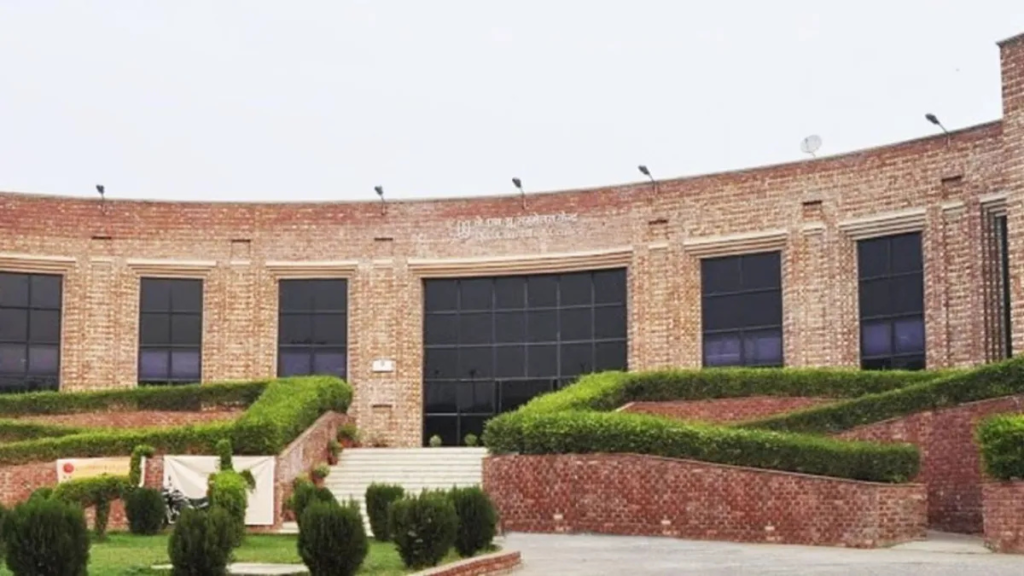JNU PhD admissions for the academic year 2025–26 have officially begun, but instead of just marking a new academic session, they have sparked widespread protest on campus. The Jawaharlal Nehru University Students’ Union (JNUSU) launched an indefinite hunger strike on Thursday night, accusing the university administration of making the process exclusionary and undemocratic. At the heart of the protest is the decision to exclude candidates who appeared for the June 2025 UGC-NET exam and the refusal to reinstate the Jawaharlal Nehru University Entrance Examination (JNUEE) for doctoral admissions.
Admission Schedule and Process
The university opened its online application portal for PhD admissions on June 26. Interested candidates have until July 7 to submit their applications. For those needing to make corrections, a brief window will be available from July 8 to 9. After this, shortlisted applicants will be invited for the viva-voce round, with invitations expected by July 18. The viva-voce examinations will take place between July 25 and 31.
The first merit list will be released on August 11. Students selected in this round must complete their pre-enrolment registration and fee payment by August 13, followed by document verification from August 18 to 21. If vacancies remain, a second list will be announced on August 29, with registration from August 29 to 31 and verification on September 4 and 5. A final list, if required, will be released on September 15, and all admissions are expected to conclude by September 30.
Why Are Students Protesting?
JNUSU has strongly criticised the administration’s decision to exclude candidates who appeared for the June 2025 UGC-NET exam from applying this year. According to student leaders, many of these candidates are recent postgraduates who make up a large section of the potential applicant pool. By excluding them, JNU has effectively shut the door on many deserving students, they argue.
The students’ union believes that the exclusion reflects a shift away from the university’s traditional values of inclusivity and equal opportunity. They point out that many of these candidates were banking on JNU to continue its legacy of offering research opportunities to students from all backgrounds. Now, they say, the process seems designed to favour only certain categories of applicants.

The Demand for JNUEE
Another major demand of the students is the reinstatement of the JNU Entrance Examination (JNUEE) as a mode of PhD admissions. For years, JNUEE was seen as a hallmark of the university’s commitment to academic transparency and fairness. The test allowed students from a wide range of universities and regions to compete on a level playing field.
JNUSU claims that ever since JNUEE was discontinued in favour of centralised admission through UGC-NET, the process has become less accessible. They argue that relying solely on NET scores disadvantages many candidates, particularly those from marginalised communities or underfunded institutions who may not have had the resources to prepare for NET in the same way as others.
Hunger Strike and Student Demands
Leading the hunger strike are JNUSU president Nitish Kumar, vice-president Manisha, and general secretary Munteha Fatima. The union has declared that the strike will continue until the university agrees to reconsider its policies. In their statement, student leaders condemned what they described as the Vice-Chancellor’s “administrative high-handedness” and refusal to engage in dialogue with elected student representatives.
The union has called on the administration to hold consultations with students and faculty before implementing major changes in the admission process. They believe that decisions affecting the academic future of thousands of students should not be made unilaterally.
The Administration’s Silence
So far, the university administration has not publicly responded to the strike or indicated any willingness to revise the admission process. The Vice-Chancellor’s office has also not commented on the students’ demands or the reasons behind the exclusion of June 2025 NET candidates.
The silence has only fuelled frustration on campus. Many students and faculty members have expressed solidarity with the hunger strikers, urging the administration to open lines of communication and address the concerns raised.
A Campus at Crossroads
JNU PhD admissions this year have become about more than just entry into research programmes. The unfolding events reflect a deeper struggle over the university’s identity and values. For decades, JNU has been known for its inclusive, socially conscious approach to higher education. Now, students fear that this legacy is under threat.
Whether the administration will respond to the protest or stick to its current course remains to be seen. But for now, the hunger strike continues, symbolising a fight not just for admissions, but for the soul of one of India’s most iconic universities.
ALSO READ
NEET Success of 509 Punjab Govt School Students Marks Shift in Education and Social Change
Quality Education at the Core of Telangana Board’s New Strategy for Intermediate Students
Himachal makes daily news reading compulsory in schools to enhance student awareness